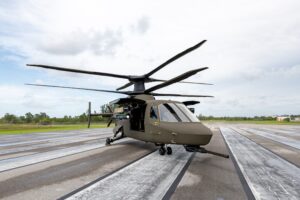The Army expects the competitive prototypes for its Future Attack Reconnaissance Aircraft (FARA) program to start flying by “about the middle of next year,” a lead official said Tuesday.
Rodney Davis, the Army’s acting program executive officer for aviation, provided the update following the Army’s recent confirmation it will deliver the new General Electric Aviation
[GE]-built T901 helicopter engine to FARA competitors Bell [TXT] and Sikorsky [LMT] this month.

The delivery milestone for the GE T901 engine, developed under the Improved Turbine Engine Program (ITEP), follows several delays due to manufacturing challenges that pushed the FARA program timeline and flight test plans by nearly a year.
FARA is the Army’s program to field a new scout attack helicopter, having selected Bell’s 360 Invictus and Sikorsky’s Raider X designs for the current competitive prototyping phase.
The Army said last week it accepted the first T901 engine from GE on Sept. 28, with the second engine “currently going through the acceptance process” (Defense Daily, Oct. 4).
Davis told reporters on Tuesday the next step will be qualifying the engines before testing, to include altitude testing, and then moving to ground runs.
“We’ll get enough testing done to get the ground runs started. And that’ll really help the vendors understand how the engine’s working on their aircraft and then we’ll do the flight tests later on,” Davis said during a media briefing at the Association of the United States Army’s annual meeting in Washington, D.C.
Doug Bush, the Army’s acquisition chief, told lawmakers in April the ITEP engine delay has pushed back the FARA schedule by around eight months, with a Milestone B decision now planned for the first quarter of fiscal year 2026 (Defense Daily, April 20).
Davis was asked Tuesday how the Army may look to make up time on the FARA schedule following the ITEP delay now that the engines are on track for delivery.
“We can only do so much with the engine testing to really speed that up. So we’re looking at ways to accelerate that and how much data do we really need to collect in order to fly the aircraft safely,” Davis responded.